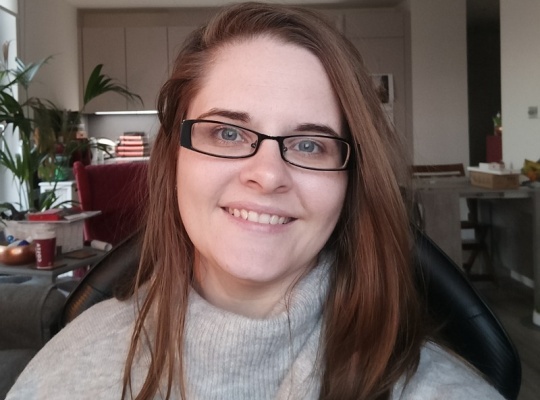Codetown
Codetown ::: a software developer's community
Michael Levin's Likes
September 2019
June 2019
Chris DiBona is the director of open source at Google, and he's been taking a big part in the open source and Free software ecosystem for a very long time--not least in his role with Google's…
Blog Some thoughts on licensing from Google's Chris DiBona 1 LikeNovember 2017
Hello folks,
Want to hear about new Java APIs and some of the decisions made at the recent…
Blog Let's talk about new Java APIs! 1 LikeJune 2016
Why use Amazon's container service?
We all experience a common set of tasks when working in IT shops. Someone gets delegated…
Blog Why use Amazon EC2 (AWS) Container Services (Docker) 1 LikeMay 2016
March 2016
November 2015
Matt Raible just published the slide deck to his JHipster talk. What's…
August 2015
Tutorial on Apache Spark, movie recommendations with machine learning
This post discusses building a…
March 2015
Just a reminder: Oracle plans to stop updating Java 7 in April of this year (next month).
Blog Java 7 EOL 1 LikeAs outlined in…
February 2015
Slightly modified from original post: http://adamldavis.com/
There’s a hot new…
Blog Hot New Language (Groovy) 2 LikesNovember 2013
Not familiar with FLEX but this article has some interesting info on it. Another tool in the web developer's toolbox?…
Blog FLEX goes to Apache 1 LikeFebruary 2013
It may not adhere to the strict Java format of OJUG but was quite useful in learning more of the growing tools available to the web based developer.
Jackie Gleason answered this and…
July 2012
Gerrit Grunwald, aka @hansolo_ on twitter, has just ported his Swing based gauges and meters framework known as …
Blog JavaFX and SteelSeries gauges using FXML 1 LikeFebruary 2012
James Ward gave a great presentation on Heroku. The server of choice for Facebook developement. He commented on some attendees not being familiar with all the buzzwords he used. So we thought…
Blog Buzzword Bingo 1 Like Translate Codetown to Another Language There's a new tool on Codetown that lets you translate the entire site to…
Notes
Welcome to Codetown!
 Codetown is a social network. It's got blogs, forums, groups, personal pages and more! You might think of Codetown as a funky camper van with lots of compartments for your stuff and a great multimedia system, too! Best of all, Codetown has room for all of your friends.
Codetown is a social network. It's got blogs, forums, groups, personal pages and more! You might think of Codetown as a funky camper van with lots of compartments for your stuff and a great multimedia system, too! Best of all, Codetown has room for all of your friends.
Created by Michael Levin Dec 18, 2008 at 6:56pm. Last updated by Michael Levin May 4, 2018.
Looking for Jobs or Staff?
Check out the Codetown Jobs group.
InfoQ Reading List
OpenCode: an Open-source AI Coding Agent Competing with Claude Code and Copilot

Open-source AI coding tool OpenCode features a native terminal-based UI, multi-session support, and compatibility with over 75 models, including Claude, OpenAI, Gemini, and local models. In addition to its CLI tool, OpenCode is also available as a desktop app and and an IDE extension for VS Code, Cursor, and other tools.
By Sergio De SimoneGetting Feedback from Test-Driven Development and Testing in Production

Teams rely on strong unit and integration tests instead of end-to-end tests. Using TDD, pair programming, and good design, they ship small changes often, test in production for real feedback, and use feature toggles to reduce risk, Ola Hast and Asgaut Mjølne Söderbom mentioned in their talk about continuous delivery with pair programming.
By Ben LindersGoogle Pushes for gRPC Support in Model Context Protocol

Google Cloud is bridging a critical gap for enterprises by introducing a gRPC transport package for the Model Context Protocol (MCP), enhancing integration for businesses already using gRPC. This game-changer reduces development friction, ensuring AI agents seamlessly connect with existing services while boosting performance and efficiency. Join the evolving landscape of AI integration!
By Steef-Jan WiggersLinkedIn Re-Architects Service Discovery: Replacing Zookeeper with Kafka and xDS at Scale

LinkedIn's engineering team successfully upgraded its legacy ZooKeeper service discovery platform to enhance scalability and performance. By leveraging Apache Kafka and the xDS protocol, the new architecture enables eventual consistency, supports multiple languages, and allows migration without downtime. Post-upgrade, latency vastly improved, facilitating hundreds of thousands of app instances.
By Patrick FarryPresentation: Beyond the Warehouse: Why BigQuery Alone Won’t Solve Your Data Problems

Sarah Usher discusses the architectural "breaking point" where warehouses like BigQuery struggle with latency and cost. She explains the necessity of a conceptual data lifecycle (Raw, Curated, Use Case) to regain control over lineage and innovation. She shares practical strategies to design a single source of truth that empowers both ML teams and analytics without bottlenecking scale.
By Sarah Usher
© 2026 Created by Michael Levin.
Powered by
![]()